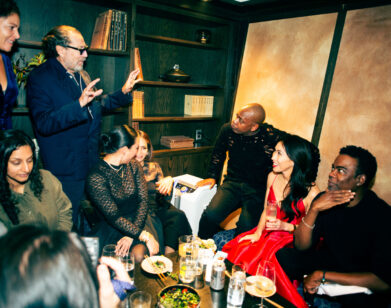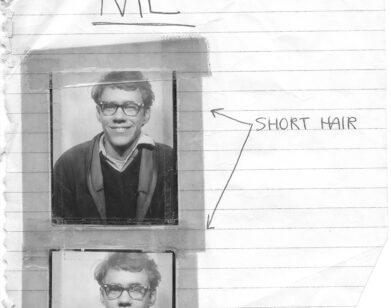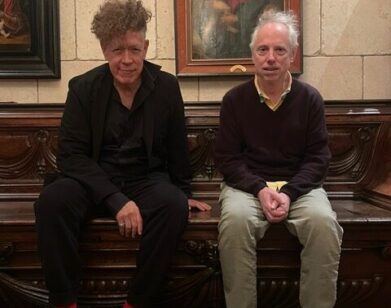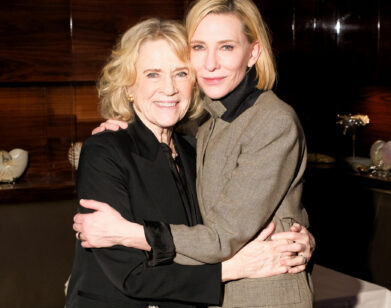James Kelman: Mo Problems

ABOVE: JAMES KELMAN. IMAGE COURTESY OF ANGUS BREMNER
Man Booker Prize-winner James Kelman’s new novel Mo Said She Was Quirky (Other Press) opens with Helen coming home from a late-night shift at a casino with her mates. As the night shifts into dawn, they stop at a London traffic light, and Helen sees a homeless man who may be her brother—triggering a mental struggle, as Helen drags herself, exhausted, back to the small flat she shares with boyfriend and daughter. She can’t sleep, haunted by the image of the dusty, street weary man. As the past she shared with her estranged brother, one she left bitter Scotland to get away from, flits through her brain, Helen is crushed by guilt, sympathy, and old feelings she thought she would never have to face again.
Kelman masters poetic stream of consciousness with bleak but sometimes tender images, tugging at the bonds of blood versus the families we choose to make for ourselves. The author expertly explores how far we will go for those we love, even if they’ve already been lost to us for years, and what happens when the past we have run so far from seeps regardless into our present. We spoke with Kelman from Scotland about run-ins with fate, punching people from your past, fighting for attention, and empathy.
ROYAL YOUNG: How do chance encounters change us?
JAMES KELMAN: Helen is an immigrant from Scotland. People like that don’t really want to have reminders of the past. They want to live in the present, they don’t want the past to rear its head up. That’s a difficult issue this young woman has to face. I think many immigrants feel real ambivalence to people of their own background, if they meet them in a new country.
YOUNG: What happens when the past is unwillingly forced upon us?
KELMAN: I think you see various issues that are all ethical and moral. To do with family obligations, Helen wonders whether her brother is suffering from some form of mental illness. Is she in a situation where she can alleviate some of that? If he is homeless, can she bring him into her home? Is there room to bring in someone else? This young woman has always had an ambivalence in her family life, an ambiguity in her relationships with her mother and father. There is guilt. I especially don’t like to see children feeling guilt, but I think it’s a fairly common feeling among them.
YOUNG: Guilt can really crush a kid.
KELMAN: It basically crushes a kid. That guilt that comes from the family. Children can feel terrible guilt if they’re unable to live up to particular guidelines. It’s almost like original sin—as soon as you do something, you’re wrong.
YOUNG: I think even more dangerous than guilt is shame. With guilt, if you are stealing as a kid, there are certain things you should be punished for and taught morals. But to be made to feel ashamed by what you’re doing is dangerous.
KELMAN: Yes, and Helen feels shame from unknowing things from her own childhood. I think this is a big thing for siblings. She wonders if in some way she may have influenced her father into preferring her to her brother. Of course, children do fight for attention, but if they gain the attention too easily, I think they do feel shame. How long does the shame last? Some people will carry that burden for many, many years, and it will affect all their relationships.
YOUNG: You have this great line in the book: “Families don’t finish.”
KELMAN: Even if you manage to escape from your family, they are always there with you. People can go away into a new life and something happens that throws them back into their homes, all those things you think you’ve outgrown. Like, you know when you meet an old friend, maybe, from childhood and they may have never moved on in their life. They want to reaffirm an old relationship, and you want to punch them in the nose. They assume they are still in control of you.
YOUNG: [laughs] I think that attitude is very strange, and it makes me angry when I meet people from my past that are dealing with me on the same level that we had.
KELMAN: Yes.
YOUNG: It doesn’t allow a relationship to evolve.
KELMAN: And also it doesn’t allow for the idea that you may have evolved and developed, as if we all stand still. You’re not allowed to be someone who’s read 20 books in the last month, for example. That is quite a strong theme in the novel. Also, that Helen’s boyfriend is from a different culture and different community, which has bonds that seem to be stronger.
YOUNG: How can that different viewpoint free us from our own culture?
KELMAN: People need to be allowed to live their life as individuals. I don’t think you need to live with the obligation of community.
YOUNG: Do we ever truly understand someone else’s experiences?
KELMAN: Yes, I do. I think one of the essential parts of being a human being is that we can. That kind of knowledge is why we have the community vision, or the prospect that it takes two people to “understand” in a sense any truth. We need to be more than one perspective in order to survive. We need to be able to know when someone else is hurting or when someone else is in pain.
YOUNG: When you’re not in tune with other people’s pain, you must feel so full of it already yourself. It’s a very angry and lonely position.
KELMAN: Empathy is crucial. Empathy must come before sympathy.
MO SAID SHE WAS QUIRKY IS OUT NOW.






